No products in the cart.
Buy Quality Assured products
Worldwide Delivery
Get Customized Washers in bulk quantity
Buy Quality Assured products
Worldwide Delivery
Get Customized Washers in bulk quantity
Menu
Categories
- Minimum quantity should 5000 of "M33 Mild Steel Plain Washers"
*Images shown for graphic representation. Not to scale.
Introduction
In the world of fasteners and mechanical components, spring washers play an irreplaceable role in ensuring the safety, stability, and durability of assemblies. A spring washer, also known as a disc spring or split washer, is specifically designed to provide a pre-load between two surfaces, thereby preventing loosening due to vibrations, shocks, and dynamic loads. Unlike ordinary flat washers, which mainly distribute load, spring washers actively resist rotational movement, making them a preferred choice across industries such as automotive, aerospace, construction, and heavy machinery.
The importance can be understood by imagining a bolted connection without them. Over time, vibrations or thermal expansion can cause nuts and bolts to loosen, leading to equipment failure, leakage, or even safety hazards. This is where they prove their value—they add elasticity to the joint, maintaining constant tension and reducing the risk of accidental disassembly.
Why Industries Rely on Spring Washers
Manufacturers and engineers choose spring washers for several reasons:
Anti-loosening property: They act as a locking device, preventing loosening of fasteners in high-vibration environments.
Load distribution: They distribute load more effectively than plain washers, ensuring bolts and nuts do not embed into softer surfaces.
Durability: Made from strong materials such as stainless steel, carbon steel, or alloy steel, they withstand extreme pressure and stress.
Versatility: Available in different sizes, designs, and thicknesses, they cater to a wide range of applications.
Growing Demand in Industrial Applications
The demand for spring washers has been steadily increasing due to rapid industrialization and the need for reliable fastening solutions. Automotive companies rely on them to ensure that engines, suspensions, and braking systems remain secure. In construction, they provide stability in steel structures and bridges. Even in electronics, miniature they are used to protect sensitive connections.
Furthermore, many businesses now search for reliable suppliers through keywords like Spring Washers Manufacturers in India to ensure quality and timely delivery. India, being a hub of industrial production, has emerged as a significant source for spring washers, exporting them to global markets.
The Role of Price and Bulk Buying
For companies dealing in large-scale projects, understanding Spring Washer Price and sourcing strategies becomes crucial. Buyers often look for opportunities to Buy Spring Washers in Bulk to save costs and maintain steady supply. Additionally, when industries search for the Best Spring Washers for Industrial Use, they often prioritize manufacturers who provide consistent quality, competitive pricing, and adherence to international standards.
In summary, these may appear as small, simple components, but they play a powerful role in maintaining safety, stability, and efficiency in countless applications. In the following sections, we will dive deeper into their types, materials, manufacturing process, applications, price trends, and how to choose the best suppliers for your needs.
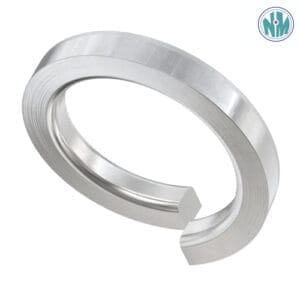

Types
While all spring washers are designed to provide tension and resist loosening, they are available in a wide variety of designs to suit specific applications. Each type offers unique benefits in terms of load distribution, vibration resistance, and durability. Understanding these types is crucial for engineers, manufacturers, and buyers to choose the right washer for their requirements.
1. Split Lock Washers
Split lock washers, also called helical spring washers, are among the most common and widely used types. They feature a helical shape that exerts a spring force between the fastener head and the substrate, preventing loosening. As the bolt is tightened, the split edges bite into the nut and the material surface, creating resistance against rotation. These spring washers are extensively used in automotive and machinery assemblies where vibration is constant.
Key advantages:
Provides excellent resistance against loosening.
Easy to install and cost-effective.
Ideal for medium-duty applications.
2. Internal Tooth Spring Washers
Internal tooth washers feature teeth that extend inward toward the center hole. These teeth grip the fastener head or nut, preventing movement. They are particularly effective when used with small screws in electrical connections, as they maintain conductivity and prevent loosening.
Best for: Electronics, electrical panels, and light mechanical assemblies.
3. External Tooth Spring Washers
As the name suggests, external tooth washers have teeth extending outward from the washer edge. These provide greater resistance and load distribution over a wider area compared to internal tooth washers. They are excellent for securing larger fasteners and are often used in heavy-duty applications.
Best for: Automotive systems, heavy machinery, and steel structures.
4. Combination Tooth Washers
Some designs incorporate both internal and external teeth, offering the combined benefits of grip and load distribution. These versatile spring washers are often used in aerospace and defense equipment, where reliability is critical.
5. Belleville Washers (Disc Spring Washers)
Belleville washers are conical-shaped washers that provide high load capacity in a compact space. Their unique design allows them to absorb shock and vibration while maintaining tension. By stacking multiple Belleville washers in series or parallel, engineers can customize load-bearing capacity.
Applications:
Power plants
Valves and flanges
High-pressure systems
6. Wave Spring Washers
Wave washers feature a wavy design, which allows them to deflect elastically under load. They provide a moderate load with minimal deflection, making them suitable for applications requiring controlled spring pressure.
Applications:
Bearing pre-loads
Small assemblies
Lightweight mechanical systems
7. Crescent Washers
Crescent spring washers are slightly curved, providing flexibility and maintaining tension. They are commonly used where controlled load and limited deflection are needed.
Applications:
Light machinery
Electronics
Thin material assemblies
8. Dome Spring Washers
These washers have a domed shape that provides uniform spring pressure and compensates for thermal expansion. They are suitable for sensitive assemblies where constant tension is necessary.
Applications:
Electrical contacts
Aerospace instruments
Precision machinery
9. Single Wave vs. Multi-Wave Washers
Wave washers are further divided into single-wave and multi-wave types. Multi-wave washers offer higher load capacity and deflection compared to single-wave designs, making them a better fit for dynamic applications.
Choosing the Right Spring Washer
The selection of spring washers depends on several factors such as:
Load requirements: Belleville washers for heavy loads, wave washers for moderate loads.
Vibration levels: Split lock and tooth washers perform well in high-vibration environments.
Material compatibility: Stainless steel, carbon steel, or alloy steel options to suit specific industries.
Space constraints: Wave and Belleville washers are ideal for compact assemblies.
By carefully analyzing these factors, manufacturers and buyers can ensure the right type of spring washer is used for each application, thereby enhancing performance and safety.
Applications
The true value of spring washers is best understood when we look at how they are applied across different industries. These seemingly small components play a big role in ensuring machinery, structures, and assemblies remain stable, secure, and reliable under stress. Their ability to provide elasticity, prevent loosening, and maintain tension makes them indispensable in industrial, commercial, and even household applications.
Below, we’ll explore the major industries and practical uses.
1. Automotive Industry
The automotive sector is one of the largest consumers of spring washers. Cars, trucks, and motorcycles are constantly exposed to vibrations, thermal expansion, and mechanical stress. Without reliable locking mechanisms, nuts and bolts in engines, suspensions, or braking systems could loosen over time.
How spring washers are used in automobiles:
Securing engine bolts to withstand vibrations.
Preventing loosening in suspension assemblies.
Ensuring safe fastening in braking systems.
Holding together transmission components.
2. Aerospace Industry
Aircraft operate under extreme conditions, where safety cannot be compromised. Even the loosening of a single fastener can lead to disastrous consequences. Spring washers are therefore widely used in aerospace applications to ensure consistent tension and durability.
Examples of applications:
Fastening jet engine components.
Maintaining the integrity of fuselage and wing assemblies.
Providing secure fastening in avionics and navigation systems.
Belleville and dome-shaped spring washers are especially preferred in aerospace for their ability to withstand high pressure and thermal expansion.
3. Construction and Infrastructure
In the construction sector, spring washers are widely used to secure structural joints. Bridges, high-rise buildings, and steel frameworks all depend on strong fasteners that can resist loosening caused by wind, vibrations, and heavy loads.
Typical applications include:
Bolted connections in steel structures.
Fastening beams and columns in high-rise buildings.
Securing joints in bridges and flyovers.
Here, external tooth and split lock spring washers are commonly used due to their superior grip and reliability in high-vibration environments.
4. Electrical and Electronics
Spring washers are not just for heavy-duty industries; they also find applications in electronics and electrical systems. Maintaining constant tension and conductivity is critical in these fields, especially in sensitive components.
Uses include:
Securing circuit boards.
Maintaining contact pressure in electrical panels.
Preventing loosening of miniature screws in consumer electronics.
Internal tooth and wave spring washers are most effective in these situations, providing a balance between size, performance, and reliability.
5. Oil, Gas, and Energy Industry
Industries like oil and gas deal with high-pressure pipelines, valves, and machinery where safety is paramount. Any loosening of fasteners could lead to leaks, accidents, or shutdowns.
Spring washers are widely used in:
Valve assemblies.
Flanges in pipelines.
High-pressure turbines.
Power generation equipment.
Belleville spring washers are often the preferred choice here due to their ability to bear heavy loads and withstand extreme conditions.
6. Railway and Heavy Machinery
Trains and industrial machines experience continuous vibration and dynamic forces. Fasteners used in these machines must remain intact to prevent accidents or downtime.
Applications include:
Securing rail joints and tracks.
Fastening bolts in locomotives.
Heavy equipment like cranes and excavators.
Split lock spring washers are the most popular choice here because they are simple, effective, and capable of handling constant vibration.
7. Household and General Applications
Even in everyday life, spring washers are present in furniture, appliances, and tools. From securing a fan assembly to ensuring that a screw doesn’t loosen in a chair, their importance extends to the household level.
Examples include:
Home appliances like washing machines and refrigerators.
Furniture joints.
Power tools and hand tools.
Why Applications Matter for Buyers
Understanding the wide applications of spring washers helps buyers and manufacturers make better decisions. For instance, a construction company looking to strengthen steel joints might search for Spring Washers Manufacturers in India to ensure they get the right quality and specification. Similarly, buyers analyzing Spring Washer Price trends or seeking to Buy Spring Washers in Bulk will factor in the industry-specific needs to get the most value.
Manufacturing Process & Materials of Spring Washers
To ensure reliability and durability, spring washers undergo a carefully controlled manufacturing process that combines precision engineering with high-quality materials. Each stage of production is designed to enhance strength, elasticity, and resistance to wear. Understanding how spring washers are manufactured helps buyers evaluate quality standards when sourcing from suppliers.
Step 1: Material Selection
The performance of spring washers starts with choosing the right raw material. Manufacturers select materials based on the end-use requirements, load conditions, and environmental exposure.
Common materials used:
Stainless Steel (SS 304, SS 316, SS 202): Provides excellent corrosion resistance, making it ideal for marine, chemical, and outdoor applications.
Carbon Steel: Cost-effective and durable, commonly used in construction and machinery.
Alloy Steel: Offers superior strength and toughness, used in aerospace and heavy-duty machinery.
Phosphor Bronze / Brass: Used for electrical and electronic applications due to excellent conductivity.
Material choice directly impacts Spring Washer Price and overall quality. Stainless steel options may cost more but offer longer service life compared to carbon steel.
Step 2: Cutting and Shaping
The selected metal sheets or rods are cut into precise blanks using power press machines or CNC cutting systems. For split lock washers, the blanks are given a helical cut to form the signature split design. In case of Belleville or wave washers, shaping is done using precision dies to achieve the required curvature.
Step 3: Heat Treatment
Heat treatment is one of the most crucial steps in manufacturing spring washers. It enhances hardness, elasticity, and resistance to fatigue. The process typically involves:
Hardening: Heating the washers to a high temperature to increase strength.
Tempering: Controlled cooling to balance hardness and toughness.
This step ensures the washers can withstand repeated loads and vibrations without losing shape.
Step 4: Surface Treatment and Coating
To further improve durability and corrosion resistance, washers undergo surface finishing. Common coatings include:
Zinc Plating: Provides corrosion resistance and a clean finish.
Black Oxide Coating: Improves appearance and adds a layer of rust protection.
Phosphate Coating: Enhances wear resistance and paint adhesion.
For industries that require high corrosion resistance, stainless steel washers are often preferred, eliminating the need for additional coatings.
Step 5: Quality Testing and Inspection
Before reaching customers, spring washers are tested for strength, elasticity, and dimensional accuracy. Quality testing may include:
Load Testing: Ensures washers can handle required force without deformation.
Dimensional Accuracy: Checked with precision tools for consistency.
Surface Finish Inspection: Ensures no cracks, burrs, or defects.
Manufacturers adhering to ISO and DIN standards are often preferred by buyers searching for Spring Washers Manufacturers in India, as these certifications guarantee international quality benchmarks.
Step 6: Packaging and Supply
Once tested, washers are packaged in bulk or retail quantities depending on customer requirements. Buyers often prefer to Buy Spring Washers in Bulk to save costs and ensure a continuous supply for large projects. Packaging is designed to prevent rust, contamination, and physical damage during transportation.
Importance of Material & Process in Performance
The choice of material and manufacturing precision directly determines whether the final product qualifies as the Best Spring Washers for Industrial Use. For example:
Carbon steel washers are affordable but may not last long in corrosive environments.
Stainless steel washers offer durability but cost more upfront.
Alloy steel washers are best suited for aerospace and heavy-duty equipment.
Therefore, while evaluating suppliers, it is important for buyers not just to check Spring Washer Price but also to assess the manufacturing standards and material quality used in production.
India as a Manufacturing Hub
India has become one of the leading producers of spring washers due to its advanced manufacturing facilities and cost-effective labor. Many international buyers prefer sourcing from Spring Washers Manufacturers in India because they offer a balance of affordability, customization, and adherence to global quality standards.
Buying Guide, Pricing Trends & Choosing the Right Supplier for Spring Washers
When it comes to sourcing spring washers, buyers often face challenges such as balancing quality with cost, ensuring timely supply, and finding trusted manufacturers. A structured buying guide helps industries make informed decisions that save time, reduce costs, and guarantee reliable performance.
Factors That Influence Price
The Spring Washer Price can vary significantly depending on multiple factors. Understanding these variables ensures that buyers make fair comparisons when shortlisting suppliers.
Material Used
Stainless steel washers generally cost more due to superior corrosion resistance.
Carbon steel washers are economical but less durable in corrosive environments.
Alloy steel and specialty metals command premium pricing due to their strength and durability.
Type of Washer
Basic split lock spring washers are cheaper than Belleville or wave designs.
Specialty washers, such as those used in aerospace, are more expensive due to stringent standards.
Size and Thickness
Larger diameters and thicker washers require more raw material, increasing cost.
Buyers often refer to a spring washer size chart to determine the right dimensions and cost implications.
Surface Coating and Treatment
Zinc plating, black oxide, or phosphate coating adds to the price but enhances lifespan.
Order Quantity
Bulk orders significantly reduce per-unit cost. Many businesses prefer to Buy Spring Washers in Bulk for construction or industrial projects to save money.
Global Pricing Trends
The price of spring washers also depends on global steel markets and demand in sectors like automotive and construction. With India being a hub of fastener production, many international buyers seek competitive quotes from Spring Washers Manufacturers in India, who are known for offering affordable yet high-quality products.
Key Considerations When Buying these Washers
Application Requirements
Define whether the washers will be used in high-vibration, corrosive, or high-load environments.
Select the washer type accordingly (e.g., split lock for vibration, Belleville for heavy loads).
Material Choice
Opt for stainless steel if corrosion resistance is critical.
Carbon steel or alloy steel may be chosen for cost-effectiveness in controlled environments.
Certifications and Standards
Ensure the supplier adheres to ISO, DIN, or ASTM standards.
Certifications guarantee consistency and international acceptance.
Supplier Reputation
Check the track record of suppliers.
Look for testimonials, reviews, and past client associations.
After-Sales Support
Reliable suppliers provide technical guidance, timely delivery, and assistance with custom orders.
Why Buy Spring Washers in Bulk?
For industries handling large-scale projects, purchasing in bulk brings several advantages:
Cost Savings: Reduced per-unit cost.
Consistency: Uniform batch quality for large assemblies.
Availability: Ensures projects do not face downtime due to shortage of components.
When making a decision to Buy Spring Washers in Bulk, buyers must balance immediate cost with long-term durability to achieve the best return on investment.
Identifying the Best Spring Washers for Industrial Use
Not all washers are created equal. To ensure that you are sourcing the Best Spring Washers for Industrial Use, check for:
High tensile strength.
Resistance to vibration loosening.
Superior corrosion protection.
Consistent dimensions as per standards.
A washer that meets these criteria may cost slightly more, but it prevents equipment failure, reduces maintenance costs, and ensures safety in the long run.
Why India is a Preferred Source for these Washers
India has become a global hub for fastener manufacturing, with numerous Spring Washers Manufacturers in India exporting products worldwide. The reasons include:
Cost Competitiveness: Lower manufacturing costs compared to Western countries.
Quality Assurance: Many Indian manufacturers comply with ISO and DIN standards.
Bulk Supply Capability: Ability to handle high-volume orders efficiently.
Customization: Flexibility in design, material, and coating based on client needs.
This makes India a one-stop destination for industries across automotive, construction, aerospace, and energy sectors looking for affordable yet reliable.
Final Buying Tips
Always compare multiple quotes before finalizing suppliers.
Ensure packaging and logistics support are included in the deal.
For long-term partnerships, prioritize suppliers who offer transparency, certifications, and consistent quality over the lowest price.
In conclusion, choosing the right supplier and evaluating the Spring Washer Price are as important as selecting the right type of washer. Whether you are planning to Buy Spring Washers in Bulk or looking for the Best Spring Washers for Industrial Use, careful evaluation of materials, applications, and supplier credentials ensures maximum value for money.
Frequently Asked Questions (FAQs)
1. What are spring washer and why are they important?
Spring washers are mechanical fasteners designed to provide tension and resist loosening in bolted connections. They prevent nuts and bolts from slipping due to vibration, shock, or dynamic loads, making assemblies safer and more durable.
2. What are the different types of spring washer?
Common types include split lock washers, internal tooth, external tooth, Belleville (disc), wave, crescent, and dome washers. Each serves unique applications, from heavy machinery to electronics.
3. Where are these washers commonly used?
They are widely used in automotive engines, aerospace systems, construction joints, electrical panels, railways, oil and gas equipment, and even in household appliances.
4. How do these prevent loosening?
Spring washers maintain constant tension between the fastener and the surface. Designs such as split lock or tooth washers physically grip the surfaces, resisting rotational movement.
5. What materials are used to manufacture these washers?
Spring washers are commonly made from stainless steel, carbon steel, alloy steel, brass, or phosphor bronze. Material selection depends on application, load requirements, and environmental conditions.
6. How does the material affect spring washer price?
Stainless steel spring washer are more expensive due to corrosion resistance, while carbon steel is more affordable but less durable in harsh environments. Alloy steel is costlier but used in heavy-duty and aerospace applications.
7. Can I buy spring washers in bulk for my project?
Yes, many suppliers offer bulk purchasing options. Choosing to Buy Spring Washers in Bulk reduces per-unit cost, ensures uniform quality, and provides a steady supply for large projects.
8. What factors should I consider when selecting spring washer?
Key factors include load requirement, vibration levels, material compatibility, space constraints, and environmental conditions. For example, Belleville washers are ideal for high loads, while wave washers suit lighter assemblies.
9. Are spring washers reusable?
In most cases, spring washer can be reused if they are not deformed or damaged. However, in critical applications such as aerospace or high-pressure systems, reusability is discouraged for safety reasons.
10. How do I know which size of spring washer to use?
You can refer to the size chart provided by manufacturers. The right size depends on bolt diameter, load requirement, and the specific application.
11. What is the difference between a flat washer and a spring washer?
Flat washers distribute load evenly but do not resist loosening. Spring washer, on the other hand, provide elasticity and locking action, making them ideal for vibration-prone environments.
12. Which is the best spring washer for industrial use?
The Best Spring Washers for Industrial Use depend on the application. For heavy loads, Belleville washers are preferred; for vibration resistance, split lock washers are effective; and for electronics, wave or tooth washers are recommended.
13. Why are Indian manufacturers popular for spring washers?
Spring Washers Manufacturers in India are preferred globally due to cost-effective production, adherence to ISO/DIN standards, customization options, and the ability to handle bulk orders.
14. How does surface coating affect performance?
Coatings like zinc plating, black oxide, or phosphate improve corrosion resistance, extend lifespan, and enhance appearance. Stainless steel spring washer often do not require additional coatings.
15. What industries benefit the most?
Industries such as automotive, aerospace, construction, oil and gas, electrical, and heavy machinery benefit significantly from using spring washers, as they ensure safety, reduce maintenance costs, and improve efficiency.
Why Choose Nafees Metal Industries
At Nafees Metal industries, we pride ourselves on delivering high-quality Washers that meet the exacting needs of our customers. With a focus on precision manufacturing, customization options, competitive pricing, and superior customer service, we are the trusted choice for all your requirements. Whether you need standard sizes or custom designs, we ensure timely delivery and exceptional product performance.
Visit our manufacturing unit at Reay Road, Mumbai .

Be the first to review “Spring Washers” Cancel reply
Spring Washers
2 people are viewing this product right now
₹1.20 /per piece
We have this product in all sizes & all metals as per your requirements.
To share your requirements contact us by using the Call us?or Request Quote?option below.
Pricing will be based on the customization.
Estimated delivery:14 days
Introduction
In the world of fasteners and mechanical components, spring washers play an irreplaceable role in ensuring the safety, stability, and durability of assemblies. A spring washer, also known as a disc spring or split washer, is specifically designed to provide a pre-load between two surfaces, thereby preventing loosening due to vibrations, shocks, and dynamic loads. Unlike ordinary flat washers, which mainly distribute load, spring washers actively resist rotational movement, making them a preferred choice across industries such as automotive, aerospace, construction, and heavy machinery.
The importance can be understood by imagining a bolted connection without them. Over time, vibrations or thermal expansion can cause nuts and bolts to loosen, leading to equipment failure, leakage, or even safety hazards. This is where they prove their value—they add elasticity to the joint, maintaining constant tension and reducing the risk of accidental disassembly.
Why Industries Rely on Spring Washers
Manufacturers and engineers choose spring washers for several reasons:
Anti-loosening property: They act as a locking device, preventing loosening of fasteners in high-vibration environments.
Load distribution: They distribute load more effectively than plain washers, ensuring bolts and nuts do not embed into softer surfaces.
Durability: Made from strong materials such as stainless steel, carbon steel, or alloy steel, they withstand extreme pressure and stress.
Versatility: Available in different sizes, designs, and thicknesses, they cater to a wide range of applications.
Growing Demand in Industrial Applications
The demand for spring washers has been steadily increasing due to rapid industrialization and the need for reliable fastening solutions. Automotive companies rely on them to ensure that engines, suspensions, and braking systems remain secure. In construction, they provide stability in steel structures and bridges. Even in electronics, miniature they are used to protect sensitive connections.
Furthermore, many businesses now search for reliable suppliers through keywords like Spring Washers Manufacturers in India to ensure quality and timely delivery. India, being a hub of industrial production, has emerged as a significant source for spring washers, exporting them to global markets.
The Role of Price and Bulk Buying
For companies dealing in large-scale projects, understanding Spring Washer Price and sourcing strategies becomes crucial. Buyers often look for opportunities to Buy Spring Washers in Bulk to save costs and maintain steady supply. Additionally, when industries search for the Best Spring Washers for Industrial Use, they often prioritize manufacturers who provide consistent quality, competitive pricing, and adherence to international standards.
In summary, these may appear as small, simple components, but they play a powerful role in maintaining safety, stability, and efficiency in countless applications. In the following sections, we will dive deeper into their types, materials, manufacturing process, applications, price trends, and how to choose the best suppliers for your needs.


Types
While all spring washers are designed to provide tension and resist loosening, they are available in a wide variety of designs to suit specific applications. Each type offers unique benefits in terms of load distribution, vibration resistance, and durability. Understanding these types is crucial for engineers, manufacturers, and buyers to choose the right washer for their requirements.
1. Split Lock Washers
Split lock washers, also called helical spring washers, are among the most common and widely used types. They feature a helical shape that exerts a spring force between the fastener head and the substrate, preventing loosening. As the bolt is tightened, the split edges bite into the nut and the material surface, creating resistance against rotation. These spring washers are extensively used in automotive and machinery assemblies where vibration is constant.
Key advantages:
Provides excellent resistance against loosening.
Easy to install and cost-effective.
Ideal for medium-duty applications.
2. Internal Tooth Spring Washers
Internal tooth washers feature teeth that extend inward toward the center hole. These teeth grip the fastener head or nut, preventing movement. They are particularly effective when used with small screws in electrical connections, as they maintain conductivity and prevent loosening.
Best for: Electronics, electrical panels, and light mechanical assemblies.
3. External Tooth Spring Washers
As the name suggests, external tooth washers have teeth extending outward from the washer edge. These provide greater resistance and load distribution over a wider area compared to internal tooth washers. They are excellent for securing larger fasteners and are often used in heavy-duty applications.
Best for: Automotive systems, heavy machinery, and steel structures.
4. Combination Tooth Washers
Some designs incorporate both internal and external teeth, offering the combined benefits of grip and load distribution. These versatile spring washers are often used in aerospace and defense equipment, where reliability is critical.
5. Belleville Washers (Disc Spring Washers)
Belleville washers are conical-shaped washers that provide high load capacity in a compact space. Their unique design allows them to absorb shock and vibration while maintaining tension. By stacking multiple Belleville washers in series or parallel, engineers can customize load-bearing capacity.
Applications:
Power plants
Valves and flanges
High-pressure systems
6. Wave Spring Washers
Wave washers feature a wavy design, which allows them to deflect elastically under load. They provide a moderate load with minimal deflection, making them suitable for applications requiring controlled spring pressure.
Applications:
Bearing pre-loads
Small assemblies
Lightweight mechanical systems
7. Crescent Washers
Crescent spring washers are slightly curved, providing flexibility and maintaining tension. They are commonly used where controlled load and limited deflection are needed.
Applications:
Light machinery
Electronics
Thin material assemblies
8. Dome Spring Washers
These washers have a domed shape that provides uniform spring pressure and compensates for thermal expansion. They are suitable for sensitive assemblies where constant tension is necessary.
Applications:
Electrical contacts
Aerospace instruments
Precision machinery
9. Single Wave vs. Multi-Wave Washers
Wave washers are further divided into single-wave and multi-wave types. Multi-wave washers offer higher load capacity and deflection compared to single-wave designs, making them a better fit for dynamic applications.
Choosing the Right Spring Washer
The selection of spring washers depends on several factors such as:
Load requirements: Belleville washers for heavy loads, wave washers for moderate loads.
Vibration levels: Split lock and tooth washers perform well in high-vibration environments.
Material compatibility: Stainless steel, carbon steel, or alloy steel options to suit specific industries.
Space constraints: Wave and Belleville washers are ideal for compact assemblies.
By carefully analyzing these factors, manufacturers and buyers can ensure the right type of spring washer is used for each application, thereby enhancing performance and safety.
Applications
The true value of spring washers is best understood when we look at how they are applied across different industries. These seemingly small components play a big role in ensuring machinery, structures, and assemblies remain stable, secure, and reliable under stress. Their ability to provide elasticity, prevent loosening, and maintain tension makes them indispensable in industrial, commercial, and even household applications.
Below, we’ll explore the major industries and practical uses.
1. Automotive Industry
The automotive sector is one of the largest consumers of spring washers. Cars, trucks, and motorcycles are constantly exposed to vibrations, thermal expansion, and mechanical stress. Without reliable locking mechanisms, nuts and bolts in engines, suspensions, or braking systems could loosen over time.
How spring washers are used in automobiles:
Securing engine bolts to withstand vibrations.
Preventing loosening in suspension assemblies.
Ensuring safe fastening in braking systems.
Holding together transmission components.
2. Aerospace Industry
Aircraft operate under extreme conditions, where safety cannot be compromised. Even the loosening of a single fastener can lead to disastrous consequences. Spring washers are therefore widely used in aerospace applications to ensure consistent tension and durability.
Examples of applications:
Fastening jet engine components.
Maintaining the integrity of fuselage and wing assemblies.
Providing secure fastening in avionics and navigation systems.
Belleville and dome-shaped spring washers are especially preferred in aerospace for their ability to withstand high pressure and thermal expansion.
3. Construction and Infrastructure
In the construction sector, spring washers are widely used to secure structural joints. Bridges, high-rise buildings, and steel frameworks all depend on strong fasteners that can resist loosening caused by wind, vibrations, and heavy loads.
Typical applications include:
Bolted connections in steel structures.
Fastening beams and columns in high-rise buildings.
Securing joints in bridges and flyovers.
Here, external tooth and split lock spring washers are commonly used due to their superior grip and reliability in high-vibration environments.
4. Electrical and Electronics
Spring washers are not just for heavy-duty industries; they also find applications in electronics and electrical systems. Maintaining constant tension and conductivity is critical in these fields, especially in sensitive components.
Uses include:
Securing circuit boards.
Maintaining contact pressure in electrical panels.
Preventing loosening of miniature screws in consumer electronics.
Internal tooth and wave spring washers are most effective in these situations, providing a balance between size, performance, and reliability.
5. Oil, Gas, and Energy Industry
Industries like oil and gas deal with high-pressure pipelines, valves, and machinery where safety is paramount. Any loosening of fasteners could lead to leaks, accidents, or shutdowns.
Spring washers are widely used in:
Valve assemblies.
Flanges in pipelines.
High-pressure turbines.
Power generation equipment.
Belleville spring washers are often the preferred choice here due to their ability to bear heavy loads and withstand extreme conditions.
6. Railway and Heavy Machinery
Trains and industrial machines experience continuous vibration and dynamic forces. Fasteners used in these machines must remain intact to prevent accidents or downtime.
Applications include:
Securing rail joints and tracks.
Fastening bolts in locomotives.
Heavy equipment like cranes and excavators.
Split lock spring washers are the most popular choice here because they are simple, effective, and capable of handling constant vibration.
7. Household and General Applications
Even in everyday life, spring washers are present in furniture, appliances, and tools. From securing a fan assembly to ensuring that a screw doesn’t loosen in a chair, their importance extends to the household level.
Examples include:
Home appliances like washing machines and refrigerators.
Furniture joints.
Power tools and hand tools.
Why Applications Matter for Buyers
Understanding the wide applications of spring washers helps buyers and manufacturers make better decisions. For instance, a construction company looking to strengthen steel joints might search for Spring Washers Manufacturers in India to ensure they get the right quality and specification. Similarly, buyers analyzing Spring Washer Price trends or seeking to Buy Spring Washers in Bulk will factor in the industry-specific needs to get the most value.
Manufacturing Process & Materials of Spring Washers
To ensure reliability and durability, spring washers undergo a carefully controlled manufacturing process that combines precision engineering with high-quality materials. Each stage of production is designed to enhance strength, elasticity, and resistance to wear. Understanding how spring washers are manufactured helps buyers evaluate quality standards when sourcing from suppliers.
Step 1: Material Selection
The performance of spring washers starts with choosing the right raw material. Manufacturers select materials based on the end-use requirements, load conditions, and environmental exposure.
Common materials used:
Stainless Steel (SS 304, SS 316, SS 202): Provides excellent corrosion resistance, making it ideal for marine, chemical, and outdoor applications.
Carbon Steel: Cost-effective and durable, commonly used in construction and machinery.
Alloy Steel: Offers superior strength and toughness, used in aerospace and heavy-duty machinery.
Phosphor Bronze / Brass: Used for electrical and electronic applications due to excellent conductivity.
Material choice directly impacts Spring Washer Price and overall quality. Stainless steel options may cost more but offer longer service life compared to carbon steel.
Step 2: Cutting and Shaping
The selected metal sheets or rods are cut into precise blanks using power press machines or CNC cutting systems. For split lock washers, the blanks are given a helical cut to form the signature split design. In case of Belleville or wave washers, shaping is done using precision dies to achieve the required curvature.
Step 3: Heat Treatment
Heat treatment is one of the most crucial steps in manufacturing spring washers. It enhances hardness, elasticity, and resistance to fatigue. The process typically involves:
Hardening: Heating the washers to a high temperature to increase strength.
Tempering: Controlled cooling to balance hardness and toughness.
This step ensures the washers can withstand repeated loads and vibrations without losing shape.
Step 4: Surface Treatment and Coating
To further improve durability and corrosion resistance, washers undergo surface finishing. Common coatings include:
Zinc Plating: Provides corrosion resistance and a clean finish.
Black Oxide Coating: Improves appearance and adds a layer of rust protection.
Phosphate Coating: Enhances wear resistance and paint adhesion.
For industries that require high corrosion resistance, stainless steel washers are often preferred, eliminating the need for additional coatings.
Step 5: Quality Testing and Inspection
Before reaching customers, spring washers are tested for strength, elasticity, and dimensional accuracy. Quality testing may include:
Load Testing: Ensures washers can handle required force without deformation.
Dimensional Accuracy: Checked with precision tools for consistency.
Surface Finish Inspection: Ensures no cracks, burrs, or defects.
Manufacturers adhering to ISO and DIN standards are often preferred by buyers searching for Spring Washers Manufacturers in India, as these certifications guarantee international quality benchmarks.
Step 6: Packaging and Supply
Once tested, washers are packaged in bulk or retail quantities depending on customer requirements. Buyers often prefer to Buy Spring Washers in Bulk to save costs and ensure a continuous supply for large projects. Packaging is designed to prevent rust, contamination, and physical damage during transportation.
Importance of Material & Process in Performance
The choice of material and manufacturing precision directly determines whether the final product qualifies as the Best Spring Washers for Industrial Use. For example:
Carbon steel washers are affordable but may not last long in corrosive environments.
Stainless steel washers offer durability but cost more upfront.
Alloy steel washers are best suited for aerospace and heavy-duty equipment.
Therefore, while evaluating suppliers, it is important for buyers not just to check Spring Washer Price but also to assess the manufacturing standards and material quality used in production.
India as a Manufacturing Hub
India has become one of the leading producers of spring washers due to its advanced manufacturing facilities and cost-effective labor. Many international buyers prefer sourcing from Spring Washers Manufacturers in India because they offer a balance of affordability, customization, and adherence to global quality standards.
Buying Guide, Pricing Trends & Choosing the Right Supplier for Spring Washers
When it comes to sourcing spring washers, buyers often face challenges such as balancing quality with cost, ensuring timely supply, and finding trusted manufacturers. A structured buying guide helps industries make informed decisions that save time, reduce costs, and guarantee reliable performance.
Factors That Influence Price
The Spring Washer Price can vary significantly depending on multiple factors. Understanding these variables ensures that buyers make fair comparisons when shortlisting suppliers.
Material Used
Stainless steel washers generally cost more due to superior corrosion resistance.
Carbon steel washers are economical but less durable in corrosive environments.
Alloy steel and specialty metals command premium pricing due to their strength and durability.
Type of Washer
Basic split lock spring washers are cheaper than Belleville or wave designs.
Specialty washers, such as those used in aerospace, are more expensive due to stringent standards.
Size and Thickness
Larger diameters and thicker washers require more raw material, increasing cost.
Buyers often refer to a spring washer size chart to determine the right dimensions and cost implications.
Surface Coating and Treatment
Zinc plating, black oxide, or phosphate coating adds to the price but enhances lifespan.
Order Quantity
Bulk orders significantly reduce per-unit cost. Many businesses prefer to Buy Spring Washers in Bulk for construction or industrial projects to save money.
Global Pricing Trends
The price of spring washers also depends on global steel markets and demand in sectors like automotive and construction. With India being a hub of fastener production, many international buyers seek competitive quotes from Spring Washers Manufacturers in India, who are known for offering affordable yet high-quality products.
Key Considerations When Buying these Washers
Application Requirements
Define whether the washers will be used in high-vibration, corrosive, or high-load environments.
Select the washer type accordingly (e.g., split lock for vibration, Belleville for heavy loads).
Material Choice
Opt for stainless steel if corrosion resistance is critical.
Carbon steel or alloy steel may be chosen for cost-effectiveness in controlled environments.
Certifications and Standards
Ensure the supplier adheres to ISO, DIN, or ASTM standards.
Certifications guarantee consistency and international acceptance.
Supplier Reputation
Check the track record of suppliers.
Look for testimonials, reviews, and past client associations.
After-Sales Support
Reliable suppliers provide technical guidance, timely delivery, and assistance with custom orders.
Why Buy Spring Washers in Bulk?
For industries handling large-scale projects, purchasing in bulk brings several advantages:
Cost Savings: Reduced per-unit cost.
Consistency: Uniform batch quality for large assemblies.
Availability: Ensures projects do not face downtime due to shortage of components.
When making a decision to Buy Spring Washers in Bulk, buyers must balance immediate cost with long-term durability to achieve the best return on investment.
Identifying the Best Spring Washers for Industrial Use
Not all washers are created equal. To ensure that you are sourcing the Best Spring Washers for Industrial Use, check for:
High tensile strength.
Resistance to vibration loosening.
Superior corrosion protection.
Consistent dimensions as per standards.
A washer that meets these criteria may cost slightly more, but it prevents equipment failure, reduces maintenance costs, and ensures safety in the long run.
Why India is a Preferred Source for these Washers
India has become a global hub for fastener manufacturing, with numerous Spring Washers Manufacturers in India exporting products worldwide. The reasons include:
Cost Competitiveness: Lower manufacturing costs compared to Western countries.
Quality Assurance: Many Indian manufacturers comply with ISO and DIN standards.
Bulk Supply Capability: Ability to handle high-volume orders efficiently.
Customization: Flexibility in design, material, and coating based on client needs.
This makes India a one-stop destination for industries across automotive, construction, aerospace, and energy sectors looking for affordable yet reliable.
Final Buying Tips
Always compare multiple quotes before finalizing suppliers.
Ensure packaging and logistics support are included in the deal.
For long-term partnerships, prioritize suppliers who offer transparency, certifications, and consistent quality over the lowest price.
In conclusion, choosing the right supplier and evaluating the Spring Washer Price are as important as selecting the right type of washer. Whether you are planning to Buy Spring Washers in Bulk or looking for the Best Spring Washers for Industrial Use, careful evaluation of materials, applications, and supplier credentials ensures maximum value for money.
Frequently Asked Questions (FAQs)
1. What are spring washer and why are they important?
Spring washers are mechanical fasteners designed to provide tension and resist loosening in bolted connections. They prevent nuts and bolts from slipping due to vibration, shock, or dynamic loads, making assemblies safer and more durable.
2. What are the different types of spring washer?
Common types include split lock washers, internal tooth, external tooth, Belleville (disc), wave, crescent, and dome washers. Each serves unique applications, from heavy machinery to electronics.
3. Where are these washers commonly used?
They are widely used in automotive engines, aerospace systems, construction joints, electrical panels, railways, oil and gas equipment, and even in household appliances.
4. How do these prevent loosening?
Spring washers maintain constant tension between the fastener and the surface. Designs such as split lock or tooth washers physically grip the surfaces, resisting rotational movement.
5. What materials are used to manufacture these washers?
Spring washers are commonly made from stainless steel, carbon steel, alloy steel, brass, or phosphor bronze. Material selection depends on application, load requirements, and environmental conditions.
6. How does the material affect spring washer price?
Stainless steel spring washer are more expensive due to corrosion resistance, while carbon steel is more affordable but less durable in harsh environments. Alloy steel is costlier but used in heavy-duty and aerospace applications.
7. Can I buy spring washers in bulk for my project?
Yes, many suppliers offer bulk purchasing options. Choosing to Buy Spring Washers in Bulk reduces per-unit cost, ensures uniform quality, and provides a steady supply for large projects.
8. What factors should I consider when selecting spring washer?
Key factors include load requirement, vibration levels, material compatibility, space constraints, and environmental conditions. For example, Belleville washers are ideal for high loads, while wave washers suit lighter assemblies.
9. Are spring washers reusable?
In most cases, spring washer can be reused if they are not deformed or damaged. However, in critical applications such as aerospace or high-pressure systems, reusability is discouraged for safety reasons.
10. How do I know which size of spring washer to use?
You can refer to the size chart provided by manufacturers. The right size depends on bolt diameter, load requirement, and the specific application.
11. What is the difference between a flat washer and a spring washer?
Flat washers distribute load evenly but do not resist loosening. Spring washer, on the other hand, provide elasticity and locking action, making them ideal for vibration-prone environments.
12. Which is the best spring washer for industrial use?
The Best Spring Washers for Industrial Use depend on the application. For heavy loads, Belleville washers are preferred; for vibration resistance, split lock washers are effective; and for electronics, wave or tooth washers are recommended.
13. Why are Indian manufacturers popular for spring washers?
Spring Washers Manufacturers in India are preferred globally due to cost-effective production, adherence to ISO/DIN standards, customization options, and the ability to handle bulk orders.
14. How does surface coating affect performance?
Coatings like zinc plating, black oxide, or phosphate improve corrosion resistance, extend lifespan, and enhance appearance. Stainless steel spring washer often do not require additional coatings.
15. What industries benefit the most?
Industries such as automotive, aerospace, construction, oil and gas, electrical, and heavy machinery benefit significantly from using spring washers, as they ensure safety, reduce maintenance costs, and improve efficiency.
Why Choose Nafees Metal Industries
At Nafees Metal industries, we pride ourselves on delivering high-quality Washers that meet the exacting needs of our customers. With a focus on precision manufacturing, customization options, competitive pricing, and superior customer service, we are the trusted choice for all your requirements. Whether you need standard sizes or custom designs, we ensure timely delivery and exceptional product performance.
Visit our manufacturing unit at Reay Road, Mumbai .

Order by 2PM to get delivered next working day! We use 24 hours service with carriers in most cases so that you can get your order delivered on time.
There is £4.99 charge for delivery under £50 Orders. Additional charges will be imposed by our couriers for delivery to remote area, a surcharge may be levied to cover carriage to these areas.
There is £4.99 charge for delivery under £50 Orders. Additional charges will be imposed by our couriers for delivery to remote area, a surcharge may be levied to cover carriage to these areas.
Reviews
There are no reviews yet.
Be the first to review “Spring Washers” Cancel reply
In stock
- No Defect products
- Plating Charges excluded
- No Returns policy
Categories: Spring Washers, Washers
Got Questions?
Feel free to
Get in touch


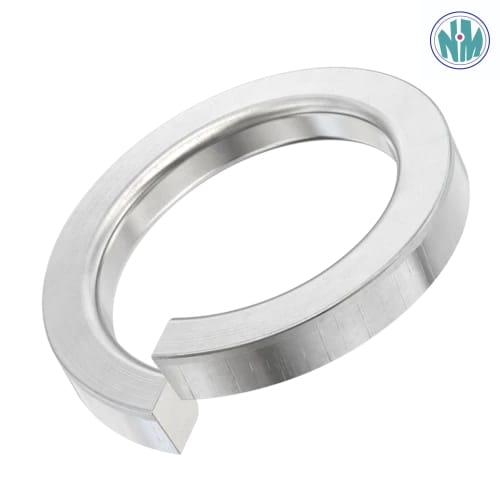
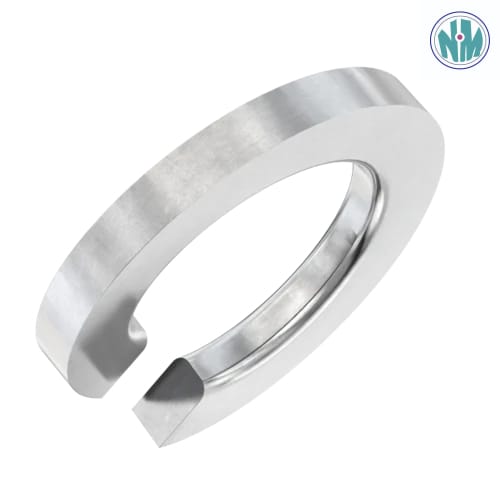
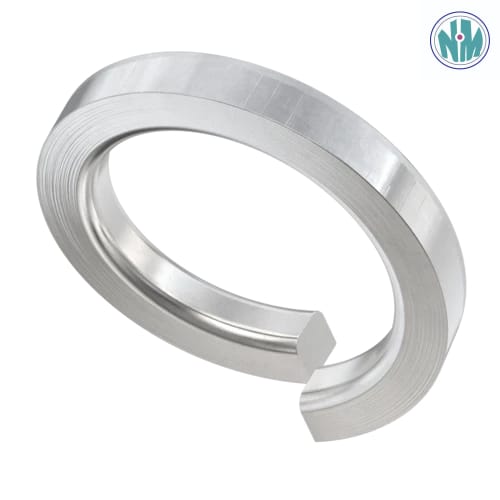
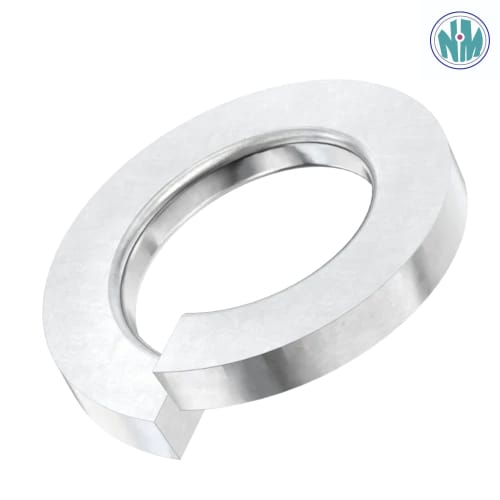
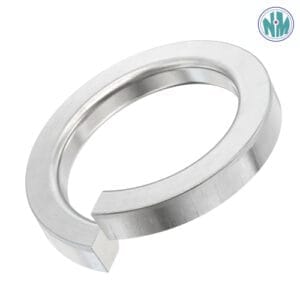
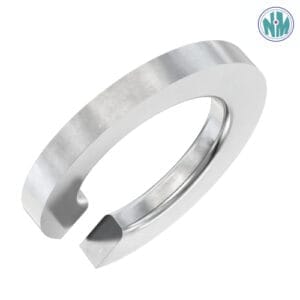
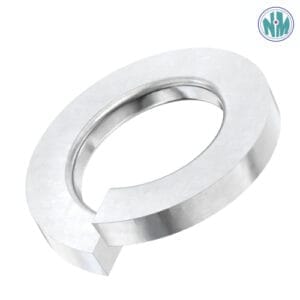


Reviews
There are no reviews yet.